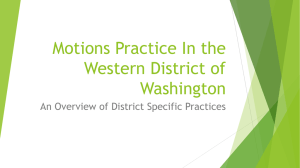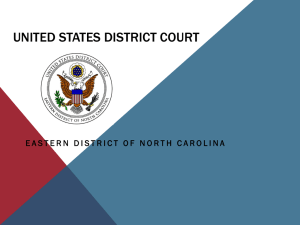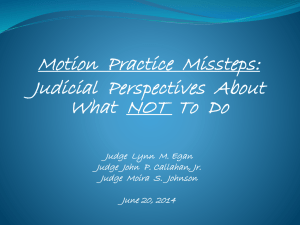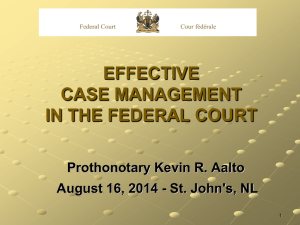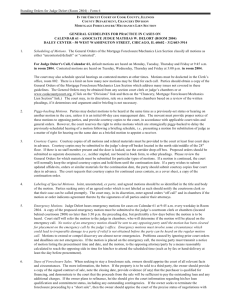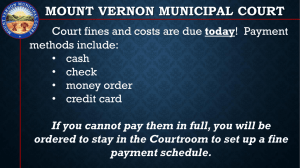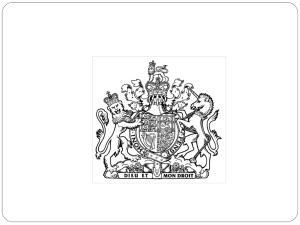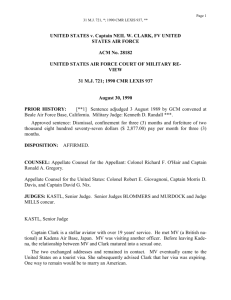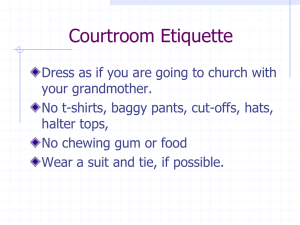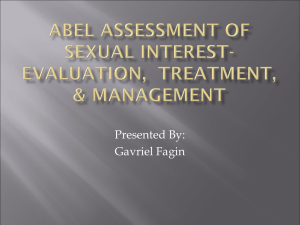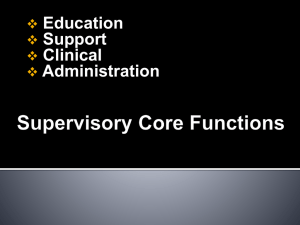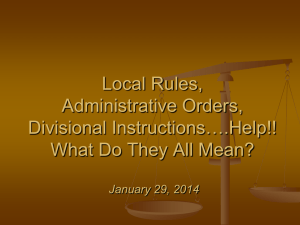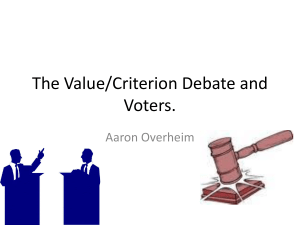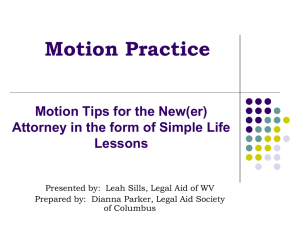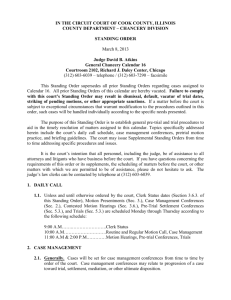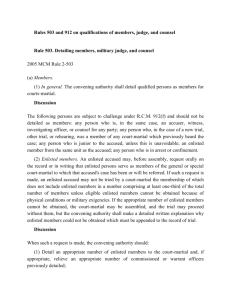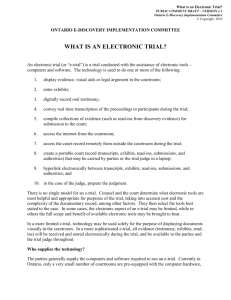Pre-Trial Management of Criminal Cases
advertisement
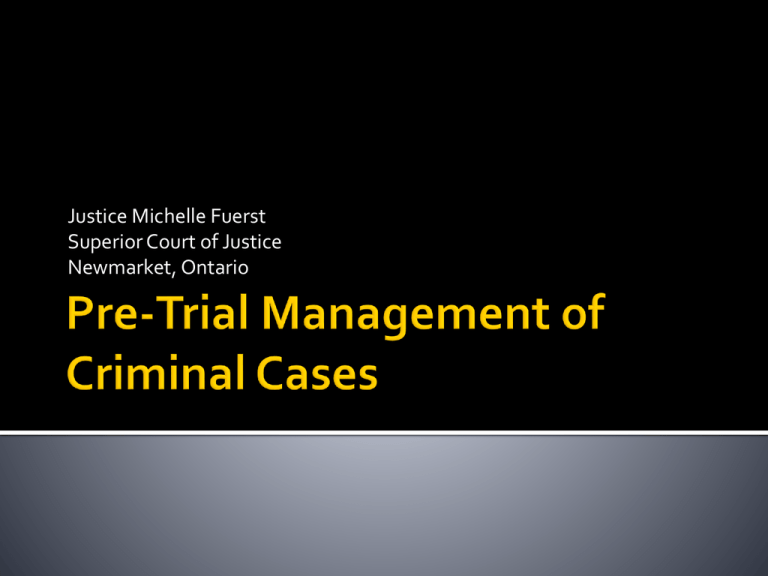
Justice Michelle Fuerst Superior Court of Justice Newmarket, Ontario Criminal Code s. 625.1: Judicial pre-trial conference mandatory for jury cases; may be ordered for non-jury case Why: To consider matters that, to promote fair and expeditious hearing, would be better decided before start of proceedings, and to arrange for decisions on those matters Identify and narrow matters in issue Impose form of trial management, e.g. hearing of motions Assist trial judge to prepare for trial Facilitate resolution of cases at early stage In Superior Court, “pop up motions” esp. under Charter prolonging trials beyond anticipated completion dates Complaints from counsel about surprise applications Complaints from jurors about length of proceedings, breaks in proceedings Domino effect on scheduling; s. 11(b) concerns JPTs required under Criminal Proceedings Rules, within 60 days after committal for trial Before trial date assigned Crown and defence counsel required to complete and file lengthy 20+ page pre-trial form in advance Presiding judge completes written Report to Trial Judge Crown counsel assigned to case, or pre-trial Crown able to take informed positions on behalf of Crown Defence counsel retained to conduct trial, or another counsel authorized to take positions on behalf of defence Specifically assigned judge with criminal law experience and facility with case management In chambers Not on record No court staff No accused If accused self-represented, in open court deemed extension of chambers, on the record with accused present Understanding of confidentiality Counsels’ JPT form includes: Synopsis of offence Information about anticipated motions Defences likely to arise Other matters relevant to trial scheduling JPT judge reviews in advance JPT judge completes comprehensive written report including parties positions’ on legal issues, materials filing deadlines Report kept in court file Available to trial judge Not accessible by public No trial date set or even targeted until JPT completed Delay on part of any party in JPT process noted on Indictment and attributed for s. 11(b) purposes Lack of full participation in JPT process taken into account if new motions at trial Consistency in approach on part of judiciary Obligations imposed on counsel, esp.: Provide necessary information e.g. about motions to be brought Take positions that bind at trial • Identification of evidentiary foundation for motions, materials to be filed, filing timetable Assignment of “homework” Follow-up JPTs Establish order for hearing of motions Estimate court time required Provide feedback Require counsel to come prepared to discuss resolution Offer frank assessment of positions • Request caselaw to support positions that seem unreasonable Offer suggestions e.g. about further information that might facilitate resolution Consider creative but meaningful alternatives Criminal Code s. 551.1: Permits appointment of case management judge for particular case, by Chief Justice or designate Prior to jury selection Test: Necessary for proper administration of justice Case management judge may or may not be trial judge Criminal Code s. 551.3: May exercise powers trial judge has before trial Assist parties to identify witnesses Encourage admissions Encourage steps to promote fair and efficient trial Establish schedules and impose deadlines Assist parties in identifying evidentiary issues Adjudicate issues related to disclosure of evidence, admissibility of evidence, Charter, expert witnesses, severance • Decision of case management judge binds parties unless trial judge satisfied it would not be in interests of justice, e.g. new jurisprudence
